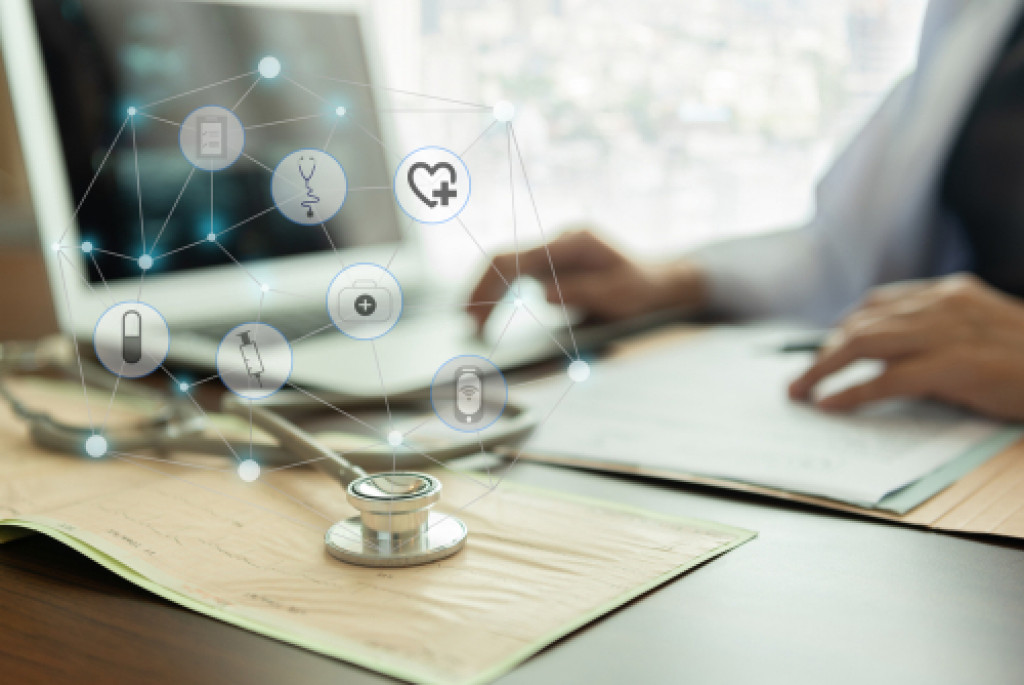We can find technology in almost every part of our day. From being woken up in the morning by an alarm clock and firing up a quick breakfast in the microwave to checking the weather on our smartphones, tech is very much a part of our everyday lives. Its purpose has always been to help improve our lives. That rings true, especially when it comes to our health and well-being.
Advancements in technology in healthcare are shaping the future of how we get treatment for all our health problems. Surgeries and procedures that were impossible to do before are now possible due to their contributions in the field. Many processes are now automated. The working conditions of healthcare workers have improved by a significant amount, all thanks to technology. However, there are still so many ways it can get even better. It makes looking forward to the future of healthcare more exciting.
With that said, here are some of the ways technology is shaping the future of healthcare.
Artificial Intelligence
Artificial Intelligence, most commonly referred to as AI, is a powerful technology that can transform how healthcare works entirely. It has deep-learning capabilities which allow it to create complex algorithms that can help it interpret a patient’s data faster and more efficiently. Because of that, it can recommend personalized treatment plans for each patient automatically based on their information and health record. It makes any healthcare worker’s job easier across all professions.
Automation can help speed up the healthcare process or even eliminate some steps along the way to make it more efficient. That feature means patients can access treatments and procedures faster than they can today. Since whether a patient lives or dies can be decided on how fast they can get the treatment they need, saving any amount of time can help save more lives.
AI also affords healthcare workers more time to allocate to more important matters such as attending to a patient’s needs or doing lab tests. It also helps hospitals manage their healthcare workers more efficiently. AI can handle patients that don’t require urgent attention or a specialist. Healthcare workers can attend to patients that require more care. All of these will help streamline a hospital’s processes so that patients can get their treatment as fast as possible without needing an appointment.
Computer-aided Design Programs and 3D Printing
Dental professionals can use computer-aided design (CAD) programs to create accurate molds of a patient’s teeth. That’s because CAD allows you to draw anything in both 2D and 3D with precision and to scale. With 3D printing, they can print teeth impressions accurately from CAD files. The strategy can mold prototypes of dental implants, veneers, crowns, and other dental needs that a patient may have faster.
Making molds of teeth traditionally would typically require weeks or months of work before a dentist can complete them. But with CAD and 3D printing, they can create them within minutes or hours. These help significantly improve the workflow of a dental clinic while reducing human error in any of their preparations or procedures.
Telemedicine

While telemedicine isn’t a new or revolutionary technology, the pandemic helped showcase how good a tool it has proven to be for modern-day healthcare.
Since almost everyone owns a smartphone these days, telemedicine gave patients a way to seek medical advice from medical professionals without leaving the safety of their homes. It also gave healthcare workers a safer working environment since they could consult their patients remotely. Which was something that everyone was looking for during the height of the Covid-19 outbreak.
Telemedicine continues to allow healthcare workers to talk to patients virtually from anywhere they could get an internet connection to this day. It minimizes their exposure to possible Covid-19 infections from patients exhibiting symptoms from the virus. It just goes to show how valuable telemedicine has become.
Robotics
One of the most exciting technologies in healthcare today is undoubtedly robotics. Machines allow for more precise surgeries, rehabilitating robotic exoskeletons, and robot companionship. Robotics play a significant role in transforming the future of healthcare in every profession.
Surgical robots can help surgeons perform surgeries more accurately with minimal human error. They provide them with a steady set of hands that can operate on a procedure as doctors would, but faster and more precisely.
Companion robots can help address emotional traumas and loneliness by providing patients with companionship. While the technology for such an object is still far from perfect, it can still show its incredible potential.
The Exciting Future of Healthcare
There’s no doubt that technology and digital medicine are here to transform the future of healthcare. It’s our job to help spread awareness around it to promote its acceptance in the field. Many people can get stuck in their traditional approaches towards health, so it’s always good to help them see how beneficial technology is for their health and well-being. The more people we can get on board with technology in healthcare, the faster new developments can arrive.

